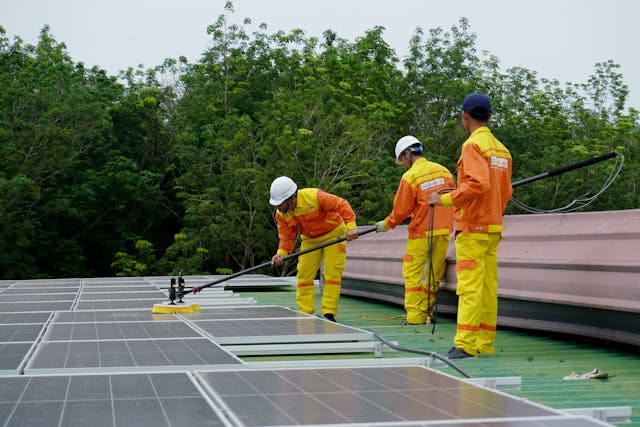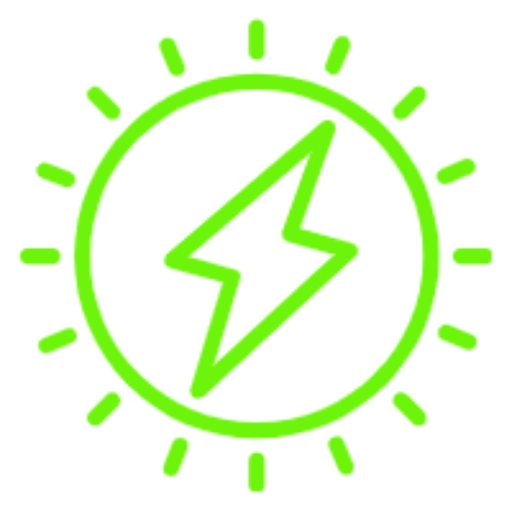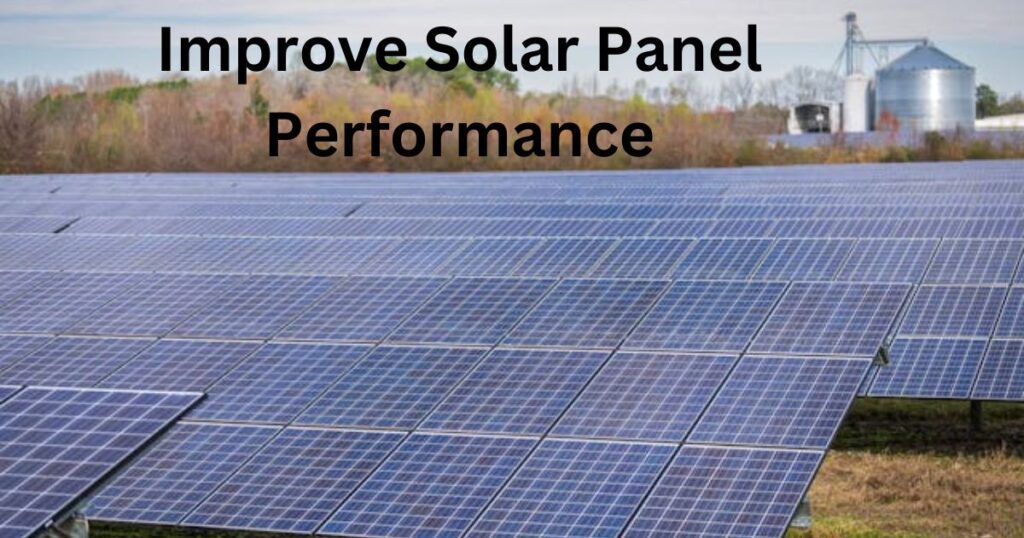Last updated on March 7th, 2025 at 12:43 am
How to Improve Solar Panel Performance is a crucial topic for anyone invested in solar energy. Solar energy offers a renewable, eco-friendly source of power, reducing electricity bills and carbon footprints. Maximizing solar panel performance ensures you get the most out of your investment, leading to greater energy efficiency and cost savings.
This article provides practical tips and strategies for improving solar panel efficiency. By the end, you’ll have a complete overview of how to enhance your solar panels’ performance, ensuring they operate at their highest potential.
- Clean your solar panels every 6 to 12 months to maximize efficiency and energy output
- Ensure panels are placed in areas with maximum sun exposure and minimal shading.
- Keep panels cool with proper ventilation to enhance performance, especially in hot climates.
- Use monitoring tools to track real-time energy production and identify any issues promptly.
Understanding Solar Panel Performance
Solar panel performance refers to the efficiency and effectiveness with which a solar panel converts sunlight into usable electrical energy. This performance is typically measured by the panel’s efficiency rate, which indicates the percentage of sunlight that the panel can transform into electricity.
Factors influencing solar panel performance include the quality of the solar cells, the amount of sunlight received, the angle and positioning of the panels, temperature, and the cleanliness of the panel surface.
High-performing solar panels generate more electricity from the same amount of sunlight compared to lower-performing ones, making them more cost-effective and beneficial for energy production.
Seasonal Solar Panel Performance
Solar panel performance can vary significantly with the changing seasons. Understanding these variations helps you make the most out of your solar investment year-round. Let’s dive into how different seasons and conditions affect solar panel performance, including the impact of heat, low light, winter conditions, and cooling.
Does Heat Affect Solar Panel Performance?
Yes, heat does affect solar panel performance, and not always in a positive way. While solar panels need sunlight to produce electricity, excessive heat can actually reduce their efficiency.
Solar panels have a temperature coefficient, which indicates how much their efficiency decreases with rising temperatures. For most panels, efficiency drops by about 0.5% for every degree Celsius above 25°C (77°F).
In very hot weather, panels can overheat, leading to a noticeable drop in performance. This means that while sunny days are great, too much heat can be counterproductive.
Solar Panel Low Light Performance
Solar panels are designed to work best in direct sunlight, but they can still generate electricity in low light conditions, such as cloudy or overcast days.
On cloudy days, the sun’s light is scattered, but solar panels can still capture this diffuse light. While the efficiency is lower compared to bright, sunny days, panels can still produce 10-25% of their usual output.
Some panels, like thin-film and bifacial panels, are designed to perform better in low light conditions.
Solar Panel Performance in Winter
Winter conditions present unique challenges and opportunities for solar panel performance. Snow can cover panels, blocking sunlight and reducing performance.
However, most panels are installed at an angle, allowing snow to slide off more easily. Additionally, panels generate some heat, which can help melt the snow.
Interestingly, solar panels can be more efficient in colder temperatures. The cool air helps keep the panels from overheating, allowing them to operate more efficiently than in hot conditions.
The sun is lower in the sky during winter, leading to shorter days and less direct sunlight. Despite this, clear winter days can still be productive for solar energy.
Effect of Cooling on Solar Panel Performance
Keeping solar panels cool can improve their performance, especially in hot climates. Proper installation allows for airflow around the panels, helping to naturally cool them down. This is why rooftop panels are often installed with a gap between the roof and the panel.
In some high-performance systems, active cooling methods like water or air cooling are used. These systems can significantly improve efficiency but are typically more expensive and complex to maintain.
Some panels come with reflective coatings that help deflect some of the sunlight and heat, keeping the panels cooler and more efficient.

How to improve solar panel performance: Best tips and strategies
Maximizing the efficiency of your solar panels ensures you get the most energy and savings from your investment. Here are some of the best tips and strategies to help you improve solar panel performance.
Does cleaning solar panels improve performance?
Cleaning solar panels can significantly improve their performance. Dust, dirt, bird droppings, pollen, and other debris can accumulate on the surface of the panels, blocking sunlight and reducing their efficiency.
Studies have shown that dirty panels can lose up to 20% of their energy output, depending on the location and environmental conditions. Regular cleaning ensures that the panels receive maximum sunlight, thereby optimizing their energy production.
Optimal Placement and Positioning
Ensure your panels are placed where they receive the most sunlight throughout the day. Avoid shading from trees, buildings, or other obstructions.
Tilt your panels to the optimal angle for your location to capture maximum sunlight. Adjusting the tilt seasonally can further improve efficiency.
Manage Temperature Effects
Proper airflow around the panels helps dissipate heat. Install panels with a gap between them and the roof to promote cooling.
Some solar panels come with reflective coatings that reduce heat absorption, keeping them cooler and more efficient.
Minimize Shading
Regularly trim trees and bushes that may grow and cast shadows on your panels. Ensure that no new structures, like buildings or chimneys, will block sunlight to your panels.
Utilize Tracking Systems
Solar trackers automatically adjust the angle of the panels to follow the sun’s path, maximizing sunlight exposure throughout the day. Though more costly, they can significantly boost performance.
Inspect for Physical Damage
Regularly inspecting your solar panels for physical damage is crucial. Even minor cracks or debris can significantly impact performance.
Look for cracks, chips, or discoloration on the panels. Ensure there are no obstructions like leaves or bird droppings.
How to check solar panel performance
Ensuring your solar panels are performing optimally is essential for maximizing their efficiency and the return on your investment. Here’s a step-by-step guide on how to check solar panel performance in a detailed yet conversational style.
Monitor Your Energy Output
One of the simplest ways to check your solar panel performance is by monitoring the energy output. Most modern solar panel systems come with monitoring software or an app provided by the manufacturer. This tool allows you to track how much electricity your panels are generating in real time.
Keep an eye on the daily output figures. If you notice any significant drops in production, it might indicate a problem.
Compare the current output with the same period from previous months or years. This can help identify any performance degradation over time.
Check the Inverter Display
Your solar system’s inverter is a critical component that converts the DC electricity generated by your panels into AC electricity used by your home. The inverter display provides valuable information about your system’s performance.
Most inverters have status lights that indicate their operation status. A green light typically means everything is working well, while a red or orange light can signal a fault.
If there’s a problem, the inverter might display an error code. Refer to the inverter manual to understand what the error code means and possible troubleshooting steps.
Use a Performance Monitoring Tool
To check your solar panel performance using monitoring software, first download and install the app provided by your manufacturer, such as “SolarEdge Monitoring” or ” PVsyst” .
Connect the app to your solar inverter via Wi-Fi, then navigate the dashboard to access real-time and historical energy output data. Set performance alerts and maintenance reminders to stay informed about your system’s efficiency.
Analyzing this data helps you identify trends, peak performance times, and potential issues, ensuring your solar panels operate optimally. For any issues or questions, utilize the app’s help section or contact customer support.
Conclusion
Optimizing solar panel performance is essential for maximizing energy output and cost savings. Regular maintenance, such as cleaning and inspections, along with proper placement and high-quality components, ensures panels operate at peak efficiency.
Managing temperature effects and minimizing shading further enhance performance. By implementing these strategies, you ensure your solar panels deliver optimal results, providing long-term benefits and contributing to a sustainable future.

